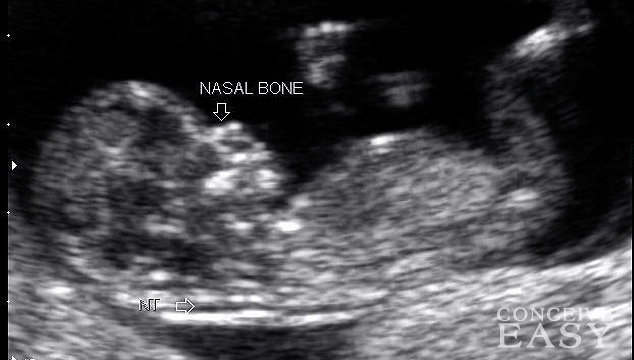![]() The information provided by our expert should not constitute a diagnosis of your condition. Always consult a medical practitioner or healthcare provider for a formal diagnosis. By making use of this content, you agree that ConceiveEasy and the expert assume no liability.
The information provided by our expert should not constitute a diagnosis of your condition. Always consult a medical practitioner or healthcare provider for a formal diagnosis. By making use of this content, you agree that ConceiveEasy and the expert assume no liability.

It’s a huge development in the world of prenatal testing. A new more reliable test for Down’s Syndrome could soon be available to pregnant women all over the world. The scientists in charge of the new tests have billed this as the “most exciting development in pregnancy care” in decades, and say that this new test could be as much as 99 percent accurate in detecting Down’s Syndrome in pregnant women. Claim Your 20 Free Pregnancy Tests – Click Here
The test, called Non-Invasive Prenatal Testing or NIPT, is able to detect Down’s Syndrome as early as ten weeks into a pregnancy and is also able to check for rare conditions such as Edward’s Syndrome and Patau Syndrome. Following clinical trials, it is set to be introduced and used by the NHS.

Currently, the tests for Down Syndrome during pregnancy are invasive and complicated. Right now, women have to undergo an ultrasound scan of the baby, followed by a blood test for the mom to be. After that, doctors analyze the risk that a pregnant woman has for having a baby with Down Syndrome.
If the risk is determined to be high, a woman will have to undergo an invasive procedure known as amniocentesis or CVS, where tissue is taken from the placenta or from the amniotic fluid to determine whether or not a baby will have the condition. Doctors estimate that the current tests miss around 15% of cases of Down Syndrome right now.

The new test does not carry any risk of miscarriage like CVS or amniocentesis does, and it is a non invasive test. The test can detect a baby’s genetic material and is over 99 percent accurate. Professor Peter Soothill, consultant in foetal medicine at the University Hospitals Bristol NHS Foundation Trust and author of the scientific impact paper, says:
“The new test is so accurate that the number of women who will need invasive tests is going to fall very dramatically while still informing those who wish to know about chromosomal abnormalities. The test is not yet available on the NHS but we think it will become a primary screening tool for all women who wish to know about foetal chromosomal abnormalities.”

Of course, no new technology is without it’s drawbacks. One of the only problems with the NIPT test is that sometimes, women might be informed of findings that are of uncertain significance, such as when placenta cells don’t fully match baby cells. These types of things may indicate a problem in some instances, but may also not be a problem.
The new test could lead to women being worried and stressed over findings which are not actually significant. However, if that is the only drawback from this new testing method, almost all experts are in agreement that it is worth it. It will be exciting to see how this new technology changes prenatal testing for pregnant women.










Comments